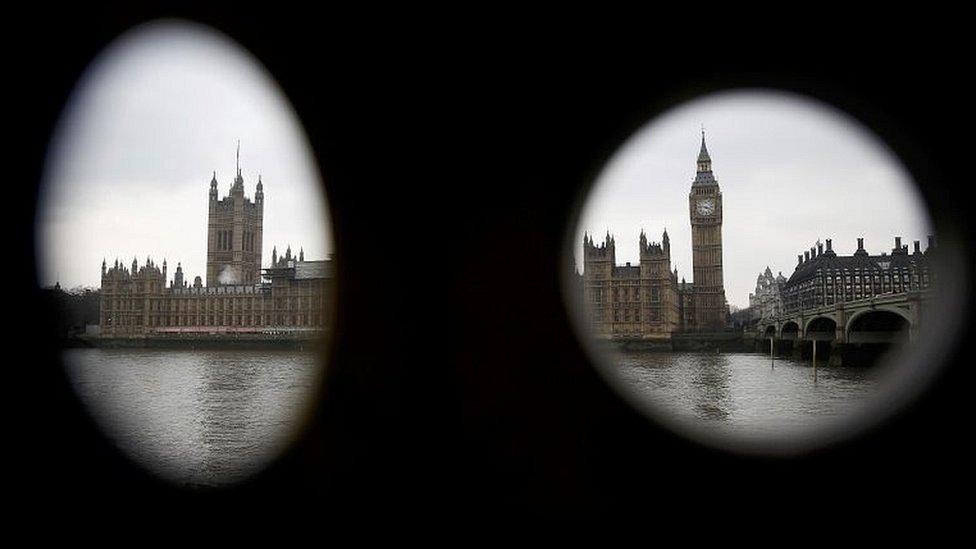Will Brexit bill face trouble in the Lords?
- Published

Sharpen your pencils. Now Theresa May has her prize from the Commons, getting the Article 50 bill (she never wanted) through with no major changes, it makes its way to the red and gold end of the Palace of Westminster, to the Lords.
The first debate is set for 20 February. More than 140 Peers have already put their names down to speak. But at that stage there probably won't be a vote. A week later the thornier more detailed committee stage begins. Then the last certain stage, the third reading and report is scheduled for 7 March.
If it all goes according to the government's plan, which sources say is "hugely unpredictable", it would allow Theresa May to stick to her timetable and push the button for exit talks to start the next week, once the Bill has been rubber-stamped by the other Palace. (It's daft in this business to make too many predictions, but I'd put a fiver on that happening on Wednesday 15 March.)
The government will have a bumpier ride in the Lords after a grumpy process in the Commons. The Lords is dramatically different because the government most certainly does not have a majority among peers. And, it is the Lords' express purpose to scrutinise and if needed, improve draft laws before sending them back along the corridor to the Commons.
Overnight a government source suggested that the Lords had better jolly well let the Brexit bill go through, or else. Despite the sabre-rattling though, the atmosphere in the Lords is less febrile than that language might suggest.
Downing Street this morning tried to dampen down the aggressive briefing. And one source in the Lords described the threat as "total BS" - I'll leave you to work that out.
The main opposition leader, Baroness Smith, has made it plain on several occasions that although the Lords may try to tweak the Bill, Labour, broadly, has no intention of trying to block it. Her modus operandi is to "hold to account, not hold to ransom".
The Liberal Democrats are more intent on making changes in the Lords, for it is there they can wield power, rather than in the Commons. But unless they have the support of Labour too, there is a limit to how much trouble they can cause.
The chatter suggests the Lords will push for concessions from the government over the rights of EU citizens to stay here, reporting the progress of negotiations regularly to Parliament and maybe on a final "meaningful vote" for both Houses on the deal.
It will be up to the government to decide whether to tweak the bill slightly as they did in the Commons or risk some defeats. Insiders predict it is likely the Lords may end up sending back the bill to the Commons once, as "ping pong" to force the government to make a change or two. But even senior Lib Dem sources don't expect hostile stand-offs for weeks on end.
The Lords will make their voices heard, there is no question about that and the Article 50 bill could run into trouble.
It would be wrong to suggest that ministers don't anticipate a tricky time. But today at least, whatever the sabre-rattling from some parts of government, this historic piece of legislation looks likely to be the subject of a few skirmishes in the Lords, rather than an apocalyptic battle.